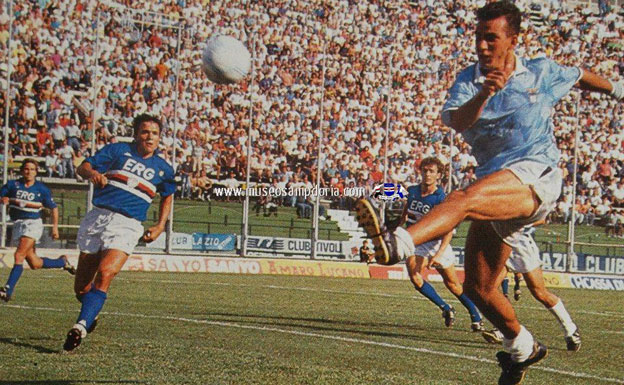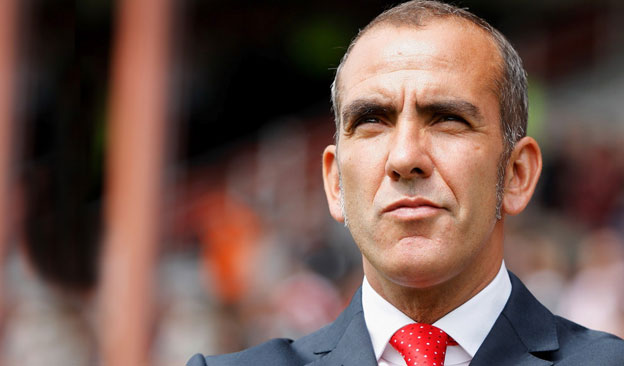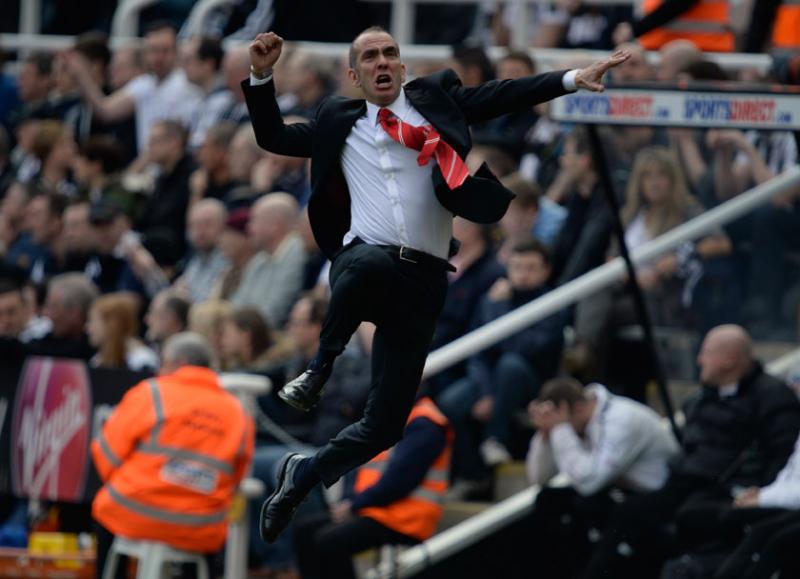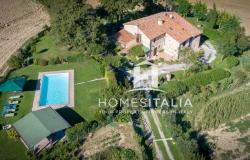On the 21st April 2012 England’s Swindon town celebrated promotion to the Football league One after winning the League Two title by five points. Their manager, the fiery Italian Paolo Di Canio, had achieved something in his first season of football management that most experts had deemed impossible less than twelve months before.
For the Italian, who during his playing days was arguably as famous for his on-pitch busts ups and outspoken opinions as he was for his extraordinary football skills, it was a poignant moment. He dedicated his sides promotion to his mother and father who had sadly both recently passed away.
 Of course, in true Paolo Di Canio style, the season wasn't without its problems: by the end of August he had made headlines after a very public pitch-side spat with his striker Leon Clarke during a League Cup defeat to Southampton and had lost four of his opening five League games. Matters got worse when he was sent to the stands for his out of control pitch-side antics, leaving Swindon fans and football pundits alike to question not only Di Canio’s credentials as a football manager, but also whether he could keep his famous temper in check for the remaining nine month of the season.
Of course, in true Paolo Di Canio style, the season wasn't without its problems: by the end of August he had made headlines after a very public pitch-side spat with his striker Leon Clarke during a League Cup defeat to Southampton and had lost four of his opening five League games. Matters got worse when he was sent to the stands for his out of control pitch-side antics, leaving Swindon fans and football pundits alike to question not only Di Canio’s credentials as a football manager, but also whether he could keep his famous temper in check for the remaining nine month of the season.
But Paolo Di Canio had never been a man to shy away from critics. Born in the Quarticciolo district of Rome in July 1968, the young Paolo had a difficult childhood. He was forced to wear orthopaedic shoes to cure knee problems and was christened “palloca” or “fatty” by the local youths due to his self confessed addiction to soft drinks and sweets. But where many would have shrunk away into the shadows, Paolo came out louder than ever and announced his allegiance to Lazio football club. A big statement for a young boy living in a district full of AS Roma supporters. Even at this young age Paolo flourished on confrontation and, indeed, it was this stubbornness and refusal to give up which gave him the encouragement to take up a strict training regime that would soon bring him to the attention of local scouts.
By 1985 his dedication paid off when he was signed by his beloved Lazio where he remained for the next five years before a surprise move to Serie A giants Juventus. In 1993 he won the UEFA cup with his new club before serious fallout with manager Giovanni Trapattoni saw him spend the 1993/94 season on loan at Napoli. Di Canio finished a great season with the Naples club with his manager Marcello Lippi calling him the best player in Serie A.

However, after a move to AC Milan, the following two seasons were a huge disappointment. He struggled to keep a first team place with fierce competition from established stars such as Rudd Gullit and after another altercation, this time with Fabio Capello, it looked as though Paolo’s whole career was hanging in the balance.
Scottish Premier League side Celtic came to the rescue, offering him an escape from Italy where his "bad boy" reputation was already beginning to overshadow his fantastic football ability. Di Canio grabbed the opportunity and after scoring 15 goals for the hoops in 37 games he became an instant hero.
From Celtic he made a £4.2 million switch to the English Premiership with Sheffield Wednesday. Again, he was an instant success showing both the passion and skill that could change the outcome of a game in an instant. But on 26th September 1998, Paolo Di Canio changed the course of his team’s home game with Arsenal for a different reason. After receiving a straight red card for a scuffle with Arsenal’s Martin Keown, the Italian, by his own admission, lost his temper and pushed referee Paul Alcock to the ground. Although he was quick to express his regret for the incident stating he was “very, very sorry!”, he received an £10,000 fine and eleven-match ban.
This time it was West Ham manager Harry Redknapp who came to the rescue, when he gambled £1.7 million for the man who many in the world of football were ready to turn their back on. Harry Redknapp has often described Paolo as” barmy” or “completely mad,” but there is no doubt that it was due to the magic of Di Canio that West Ham finished the season in their highest position since 1986. He went on to pick up the OPTA player of the year award and in March 2000 scored the Premiership Goal of the Decade before being voted West Ham's Hammer of the year by the clubs supporters.

Although it seemed that Paolo was finally allowing his football to do the talking, there was no shortage of “Paolo moments” when the referee ignored several penalty appeals in a match against Bradford City, Di Canio found it all too much and sat in the middle of the pitch refusing to play while the game went on around him. It was only after 25,000 West Ham supporters began to chant “Paolo Di Canio” to the tune of the famous Italian aria "La donna è mobile", that he finally pulled himself up off the ground to score a second half hat-trick. But there were also calmer moments that showed the other side to his nature: like when he caught the ball instead of scoring so the injured Everton goalkeeper could receive medical attention, earning him a FIFA fair play award for “a special act of good sportsmanship”.
Di Canio would eventually leave the hammers under a cloud after making headline news when he publicly criticised new manager Glen Roader which resulted in him being dropped from the team and culminated in West Ham being relegated. For Paolo, his career would eventually come full-circle when, after a spell at Charlton, he would again return to Lazio just as he had started his career some 23 years earlier. He finally announced his retirement from playing on the 10th of March 2008 after a final season with Cisco Roma.
Paolo Di Canio represented a rare breed of player, one with as much passion, enthusiasm and raw emotion as the supporters themselves. Ironically, it was this uncompromised commitment, coupled with his inability to accept authority that so often caused him to fall just short of the great heights he should have risen to. This, ultimately, led to the fact that he was never chosen to play for Italy’s national team.

In 2010, West Ham United opened the Paolo Di Canio Lounge at the request of the clubs supporters in thanks to four years of magic he gave London’s east-end, where he is still fondly remembered alongside local heroes like Bobby Moore and Martin Peters.
Di Canio has recently extended his contract as Swindon Town manager keeping him at the club until 2015 and although he claims to have “matured” during his first season at Swindon it would be a very rich man who would bet against Paolo having another very eventful 2012/13 season.









